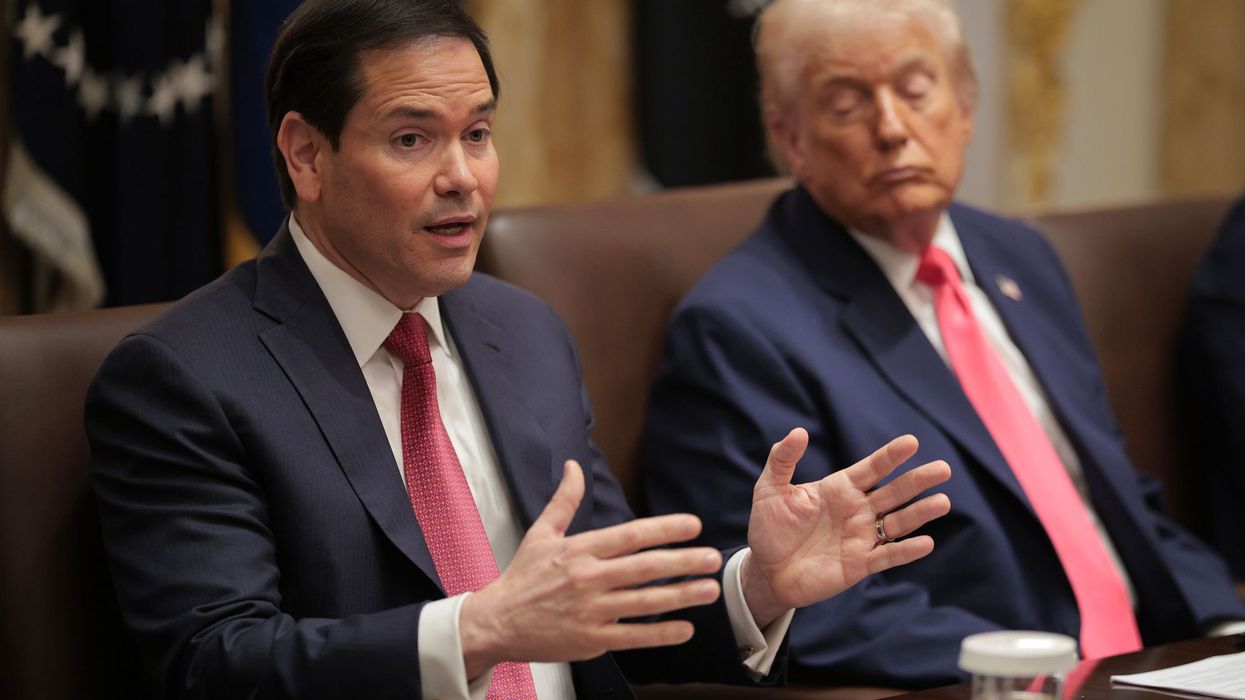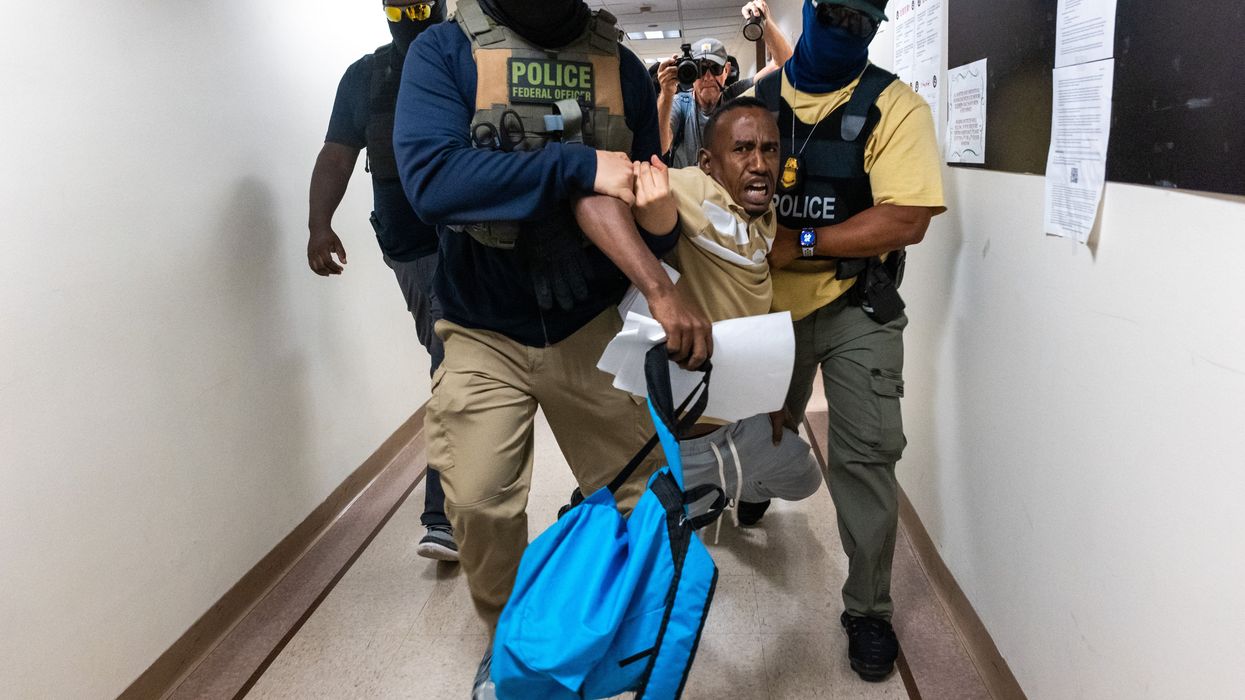March, 24 2021, 12:00am EDT

World's 60 Largest Banks Have Poured $3.8 Trillion Into Fossil Fuels Since Paris Agreement
Even amidst the global economic downturn and climate castophes, fossil fuel financing numbers were higher in 2020 than 2016.
WASHINGTON
Released today, the 12th edition of the most comprehensive report published to date on fossil fuel financing documents an alarming disconnect between the global scientific consensus on climate change and the continued business practices of the world's largest financial institutions.
This year's report, titled Banking on Climate Chaos 2021, expands its focus from 35 to 60 of the world's largest banks and reveals that in the 5 years since the Paris Agreement was adopted, these banks have pumped over $3.8 trillion dollars into the fossil fuel industry. The report also concludes that even in the midst of a pandemic-induced recession fossil fuel financing was higher in 2020 than in 2016, a trend that stands in direct opposition to the paris Agreement's stated goal of rapidly reducing carbon emissions to ensure an under 2deg, as close as possible to 1.5deg Celsius maximum global temperature rise.
The report also examines emerging climate policy commitments by banks on the distant and ill-defined goal of alignment with Paris Agreement objectives and achieving 'net zero by 2050' or on restricting financing for unconventional fossil fuels. The Report finds these trends grossly insufficient to reduce global warming and out of alignment with the goals of the Paris Agreement.
U.S.-based banks continue to be the largest global drivers of emissions in 2020, with JPMorgan Chase remaining the world's worst fossil bank. Chase recently committed to align its financing with the Paris Agreement and yet continues essentially unrestrained financing of fossil fuels. From 2016 through 2020, Chase's lending and underwriting activities have provided nearly $317 billion to fossil fuels, fully 33% more than Citi, the next worst fossil bank over this period.
A surprising result from the 2020 data is that BNP Paribas, (whose U.S. subsidiary is Bank of the West), came in as the fourth-worst fossil bank in 2020. BNP did $41 billion in fossil financing in 2020, a huge 41% increase over its 2019 activity - the biggest absolute increase in fossil financing.
These banks have poured nearly $1.5 trillion over the past 5 years into 100 top companies expanding fossil fuels. This includes companies behind highly controversial projects like the Line 3 tar sands oil pipeline and the expansion of fracking on the land of Indigenous Mapuche communities in Argentina's Patagonia region, which are just two of the over twenty case studies featured in the report.
Authored by Indigenous Environmental Network, Rainforest Action Network, BankTrack, Oil Change International, Reclaim Finance, and Sierra Club the report demonstrates that to align their policies and practices with a world that limits global warming to 1.5degC banks must abjure carbon offsets and credits, and reject other false solutions, such as geo-engineering and bio-energy to the climate crisis. Human and Indigenous Rights must be observed in all climate action and investments. Particularly, Indigenous rights such as the rights of Self Determination, and Free, Prior, and Informed Consent must be factored into all bank financing decisions.
"Ill conceived carbon offset schemes and market-based mechanisms are 'oil business as usual' and not real emissions reductions," said Alberto Salamando, Indigenous Environmental Network's Counsel on Climate Change and Indigenous and Human Rights. "Banks must not continue to be complicit in the greater suffering of humanity and bring life as we know it closer to its destruction. Humanity itself is a threatened species."
To limit global warming to 1.5degC-all banks must:
- Commit to phase out all financing for fossil fuel extraction and infrastructure, on an explicit timeline that is aligned with limiting global warming to 1.5degC, starting with financing for existing projects and companies active in tar sands oil, Arctic oil and gas, offshore oil and gas, fracked oil and gas, liquefied natural gas, coal mining, and coal power.
- Fully respect all human rights, particularly the rights of Indigenous peoples, including their rights to food and food sovereignty, their rights to water and lands and the right to Free, Prior, and Informed Consent, as articulated in the UN Declaration on the Rights of Indigenous Peoples. All financing for projects and companies that abuse human rights, including Indigenous rights must be rejected.
The Indigenous Environmental Network continues to call for divestment from these banks and financial institutions. We know that greenwashing and other false solutions will not bring the hard change of direction necessary to mitigate climate change.
Established in 1990 within the United States, IEN was formed by grassroots Indigenous peoples and individuals to address environmental and economic justice issues (EJ). IEN's activities include building the capacity of Indigenous communities and tribal governments to develop mechanisms to protect our sacred sites, land, water, air, natural resources, health of both our people and all living things, and to build economically sustainable communities.
LATEST NEWS
'Do Not Become Inured': Death Toll From Trump Boat Strikes Tops 100 After Latest Murders
"This is premeditated killing outside of armed conflict. We call that murder," said one expert.
Dec 19, 2025
The US military on Thursday bombed two vessels in the eastern Pacific, killing at least five people and pushing the death toll from the Trump administration's lawless military campaign in international waters above 100.
Thursday's strikes marked the third time this week that the US military has bombed boats operated by people accused, without evidence, of smuggling drugs. None of the dozens of strikes that have now killed at least 105 people since early September have been authorized by Congress, and legal experts at home and abroad have said the attacks clearly constitute murder.
Brian Finucane, a senior adviser with the US Program at the International Crisis Group, warned against allowing the Trump administration to normalize and escape accountability for its extrajudicial killings.
"The lawless killing spree continues. Do not become inured," Finucane wrote on social media. "This is premeditated killing outside of armed conflict. We call that murder."
As with previous attacks, the Trump administration attached a short video clip to its announcement of the Thursday strikes, which came amid mounting fears that President Donald Trump is dragging the US into an illegal war with Venezuela and possibly other South American countries.
On Dec. 18, at the direction of @SecWar Pete Hegseth, Joint Task Force Southern Spear conducted lethal kinetic strikes on two vessels operated by Designated Terrorist Organizations in international waters. Intelligence confirmed that the vessels were transiting along known… pic.twitter.com/CcCyOgYRto
— U.S. Southern Command (@Southcom) December 19, 2025
But US Defense Secretary Pete Hegseth is refusing to release footage of at least one of the deadly strikes that he authorized with a verbal order to "kill everybody" onboard the targeted vessel.
"We’re not going to release a top secret, full, unedited video of that to the general public,” Hegseth told reporters earlier this week, referring to footage of a September 2 attack in the Caribbean that killed the survivors clinging to wreckage from an initial strike.
The ACLU's Jeffrey Stein and Christopher Anders wrote Thursday that "if a president can murder civilians at sea and keep the legal justifications secret, we should all be concerned."
"The harm is even worse when basic factual evidence, such as full videos and orders, is also hidden from the American people," they continued. "Transparency can’t wait while the government murders more people. That’s why we’re asking everyone to send a message to their representatives in Congress urging them to act now. Demanding answers, insisting on public hearings, and refusing to accept secret law as a license to kill, is how we can all help stop these unlawful strikes and defend the basic principle that no one—not even the president—is above the law."
The latest bombings came a day after House Republicans blocked a pair of resolutions aimed at stopping the Trump administration's unauthorized boat strikes and march to war with Venezuela.
In the Senate, Ruben Gallego is pushing a new resolution that "orders the US Armed Forces to immediately cease hostilities against vessels in the Caribbean Sea and the eastern Pacific Ocean unless authorized by Congress."
"If the president believes the use of military force is necessary, he needs to come talk to Congress first and make that case. The decision to use military force is one that requires serious debate, and the power to declare war unambiguously belongs to Congress under the Constitution,” said Gallego. “As an Iraq war veteran, I know the costs of rushing into an unnecessary war and that the American people will not stand for it.”
But Trump insisted Thursday that he doesn't "have to" go to Congress before taking military action.
Asked if war with Venezuela is a possibility, Trump said, "I don’t rule it out."
Keep ReadingShow Less
ICC Slams New US Sanctions on Judges as 'Flagrant Attack' on Rule of Law
"When judicial actors are threatened for applying the law, it is the international legal order itself that is placed at risk," the court said.
Dec 18, 2025
The International Criminal Court and human rights groups on Thursday condemned new US sanctions on two more of the tribunal's judges, which brought the total number of sanctioned ICC jurists to 11 amid the Trump administration's escalating campaign of retaliation against people and institutions seeking to hold Israel and the United States accountable for their alleged crimes.
"Today, I am designating two International Criminal Court (ICC) judges, Gocha Lordkipanidze of Georgia and Erdenebalsuren Damdin of Mongolia, pursuant to Executive Order 14203, 'Imposing Sanctions on the International Criminal Court,'" US Secretary of State Marco Rubio said in a statement, referring to President Donald Trump's February edict.
"These individuals have directly engaged in efforts by the ICC to investigate, arrest, detain, or prosecute Israeli nationals, without Israel’s consent, including voting with the majority in favor of the ICC’s ruling against Israel’s appeal on December 15," Rubio added, referencing Monday's rejection of an Israeli bid to block a probe into alleged war crimes committed during the genocidal two-year war on Gaza.
Although Israel and the US are not ICC members and do not recognize the Hague-based tribunal's jurisdiction, Palestine is a state party to the Rome Statute governing the court. The treaty says that individuals from nonsignatory nations can be held liable for crimes committed in the territory of a member state.
Last year, the ICC issued warrants for the arrest of Israeli Prime Minister Benjamin Netanyahu and former Israeli Defense Minister Yoav Gallant for alleged crimes against humanity and war crimes in Gaza, including murder and forced starvation in a war that has left more than 250,000 Palestinians dead, wounded, or missing.
The Trump administration had previously sanctioned nine other ICC jurists: Chief Prosecutor Karim Khan (United Kingdom), Deputy Prosecutor Nazhat Shameem Khan (Fiji), Deputy Prosecutor Mame Mandiaye Niang (Senegal), Judge Solomy Balungi Bossa (Uganda), Judge Luz del Carmen Ibáñez Carranza (Peru), Judge Reine Adelaide Sophie Alapini-Gansou (Benin), Judge Beti Hohler (Slovenia), Judge Nicolas Yann Guillou (France), and Judge Kimberly Prost (Canada).
The affected judges have recently described how the US sanctions have left them and their families—who are also blacklisted—"wiped out economically and socially."
Responding to the new US punitive measures, the ICC said Thursday that "these sanctions are a flagrant attack against the independence of an impartial judicial institution which operates pursuant to the mandate conferred by its states parties from across regions."
"Such measures targeting judges and prosecutors who were elected by the states parties undermine the rule of law," the court continued. "When judicial actors are threatened for applying the law, it is the international legal order itself that is placed at risk."
"As previously stated, the court stands firmly behind its personnel and behind victims of unimaginable atrocities," the ICC added. "It will continue to carry out its mandate with independence and impartiality, in full accordance with the Rome Statute and in the interest of victims of international crimes."
Human Rights Watch also slammed the new US sanctions, which the group called "the latest attempt by the Trump administration to blatantly interfere with independent justice."
The US government has imposed sanctions on two additional ICC judges in order to shield Israeli officials from charges of grave international crimes.These sanctions are the latest attempt by the Trump administration to blatantly interfere with independent justice.
[image or embed]
— Human Rights Watch (@hrw.org) December 18, 2025 at 12:01 PM
Amnesty International's Center for International Justice lamented that "once again, the US administration is attacking international justice—sanctioning two ICC judges. This cannot be normalized."
"States must firmly oppose US threats and sanctions and uphold the court’s ability to pursue accountability," the group added, "even against the most powerful perpetrators."Keep ReadingShow Less
Rights Group Condemns 'Terror' and 'Lawlessness' Spread by Trump's Masked Thugs
“Allowing masked, unidentified agents to roam communities and apprehend people without identifying themselves erodes trusts in the rule of law and creates a dangerous vacuum where abuses can flourish."
Dec 18, 2025
As masked government agents—an oft-employed terror tool of authoritarian regimes—run roughshod amid the Trump administration's mass deportation effort, a leading human rights group on Thursday called on Congress to investigate abuses perpetrated by federal officers against immigrants and US citizens alike.
Federal immigration enforcement agents "now commonly operate masked and without visible identification, compounding the abusive and unaccountable nature of the Trump administration’s mass deportation campaign," Human Rights Watch (HRW) said. "The indefinite and widespread nature of these practices is fundamentally inconsistent with the United States’ obligations to ensure that law enforcement abuses are investigated and met with accountability."
HRW continued:
Since President Donald Trump’s return to office in January 2025, his administration has carried out an abusive campaign of immigration raids and arrests, primarily of people of color, across the country. Many of the raids target places where Latino people work, shop, eat, and live. The agents have seized people in courthouses and at regularly scheduled appointments with immigration officials, as well as in places of worship, schools, and other sensitive locations. Many raids have been marked by the sudden and unprovoked use of force without any justification, creating a climate of fear in many immigrant communities.
Drawing upon interviews with 18 people who were arrested or witnessed arrests by unidentified federal agents, HRW highlighted the "terror" and helplessness felt by victims of such "lawlessness."
“It was a horrible feeling,” said Rümeysa Öztürk, a Turkish PhD student at Tufts University who was illegally snatched off a Massachusetts street in March and whisked off to an US Immigration and Customs Enforcement (ICE) lockup in Louisiana after she published an opinion piece in a student newspaper advocating divestment from apartheid Israel as it waged a genocidal war on Gaza. With Öztürk having committed no crime, a federal judge ordered her release 45 days later.
“I didn’t think that they were the police because I had never seen police approach and take someone away like this," Öztürk said of her arrest—which bystanders likened to a kidnapping. "I thought they were people who were doxing me, and I was genuinely very afraid for my safety... As a woman who’s traveled and lived alone in various countries for my studies, I’ve never experienced intense fear for my safety—until that moment.”
Operatives with ICE—part of the Department of Homeland Security (DHS)—and other agencies have violently attacked not only unauthorized immigrants but also members of their communities including US citizens, activists, journalists, and others. The agents are often wearing masks but not badges or other identifiers, making it very difficult to hold abusers accountable.
While ICE tries to justify its widespread practice of masking agents “to prevent doxing,” HRW stressed that "this kind of generalized, blanket justification for concealing officers’ identity is not compatible with US human rights obligations, except when necessary and proportionate to address particular safety concerns."
"Anonymity also weakens deterrence, fosters conditions for impunity, and chills the exercise of rights," the group added.
It also sows terror, as Republican-appointed US District Judge William Young noted in a ruling earlier this year: "ICE goes masked for a single reason—to terrorize Americans into quiescence. Small wonder ICE often seems to need our respected military to guard them as they go about implementing our immigration laws. It should be noted that our troops do not ordinarily wear masks. Can you imagine a masked marine? It is a matter of honor—and honor still matters."
HRW also noted that "in recent months, media outlets have reported on people posing as federal agents kidnapping, sexually assaulting, and extorting victims, exploiting fears of immigration enforcement."
“Allowing masked, unidentified agents to roam communities and apprehend people without identifying themselves erodes trusts in the rule of law and creates a dangerous vacuum where abuses can flourish, exacerbating the unnecessary violence and brutality of the arrests,” HRW associate crisis and conflict director Belkis Wille said in a statement Thursday.
HRW called on Congress to "investigate the brutality of the ongoing immigration enforcement activities, including the specific impacts of unidentifiable agents carrying out stops and arrests on impeding investigations and accountability efforts."
In addition to efforts by state legislatures to unmask federal agents, congressional Democrats have demanded ICE and other officers identify themselves, and have introduced legislation—the No Secret Police Act and No Masks for ICE Act in the House and VISIBLE Act in the Senate—that would compel them to do so.
“If you uphold the peace of a democratic society, you should not be anonymous,” No Secret Police Act lead co-sponsor Rep. Adriano Espaillat (D-NY) said at the time of the bill's introduction in June. “DHS and ICE agents wearing masks and hiding identification echoes the tactics of secret police authoritarian regimes—and deviates from the practices of local law enforcement, which contributes to confusion in communities.”
Keep ReadingShow Less
Most Popular


